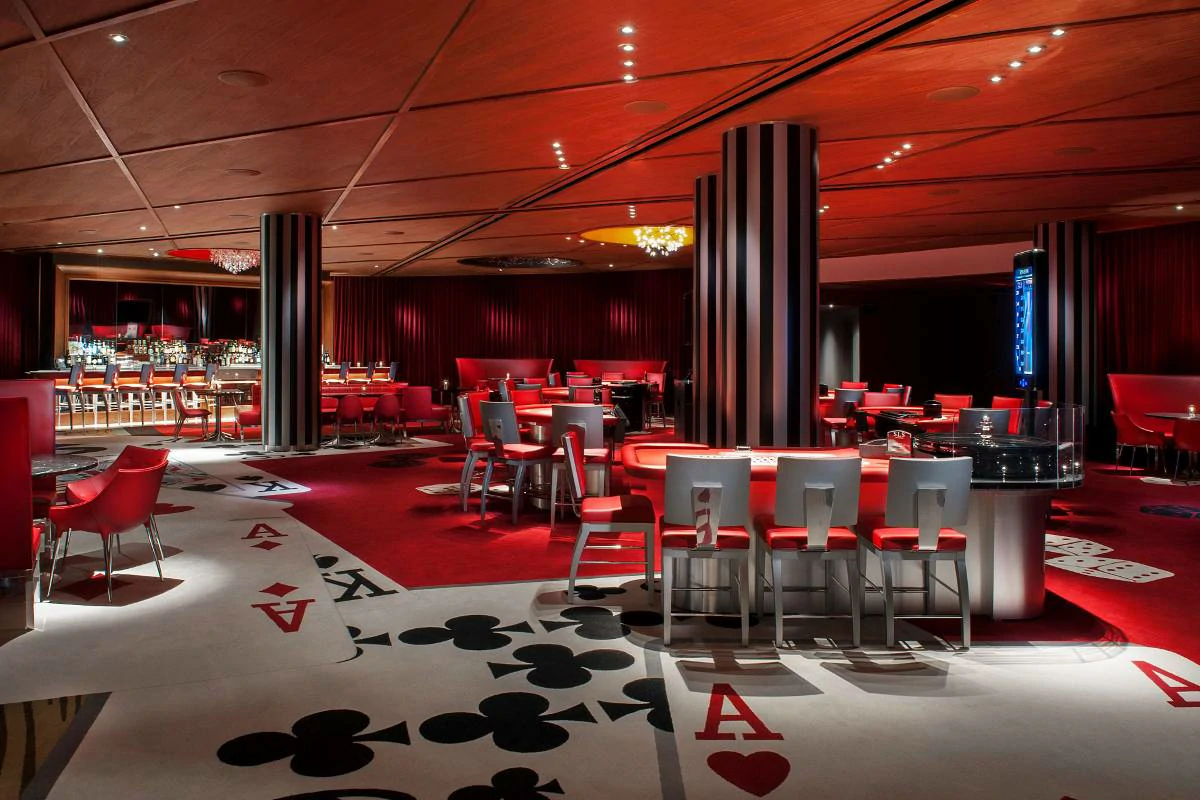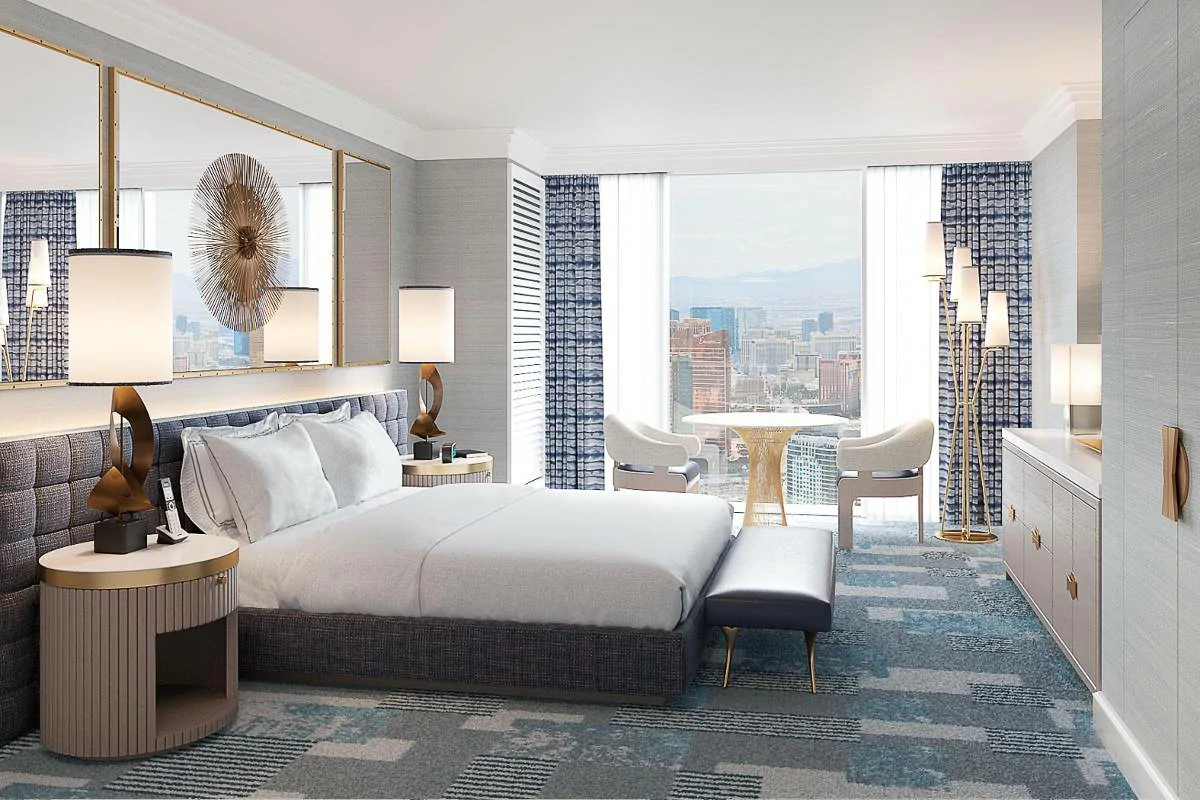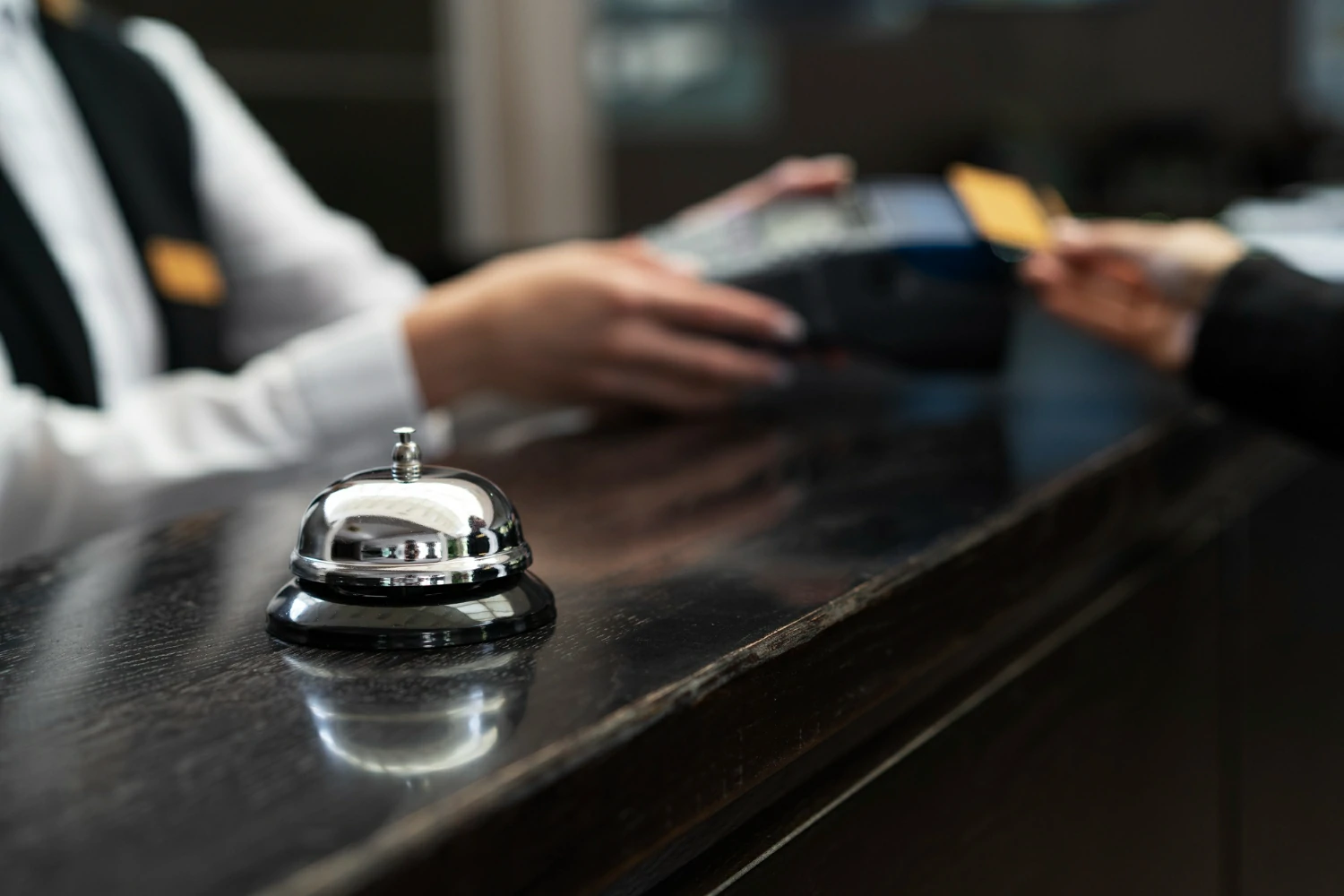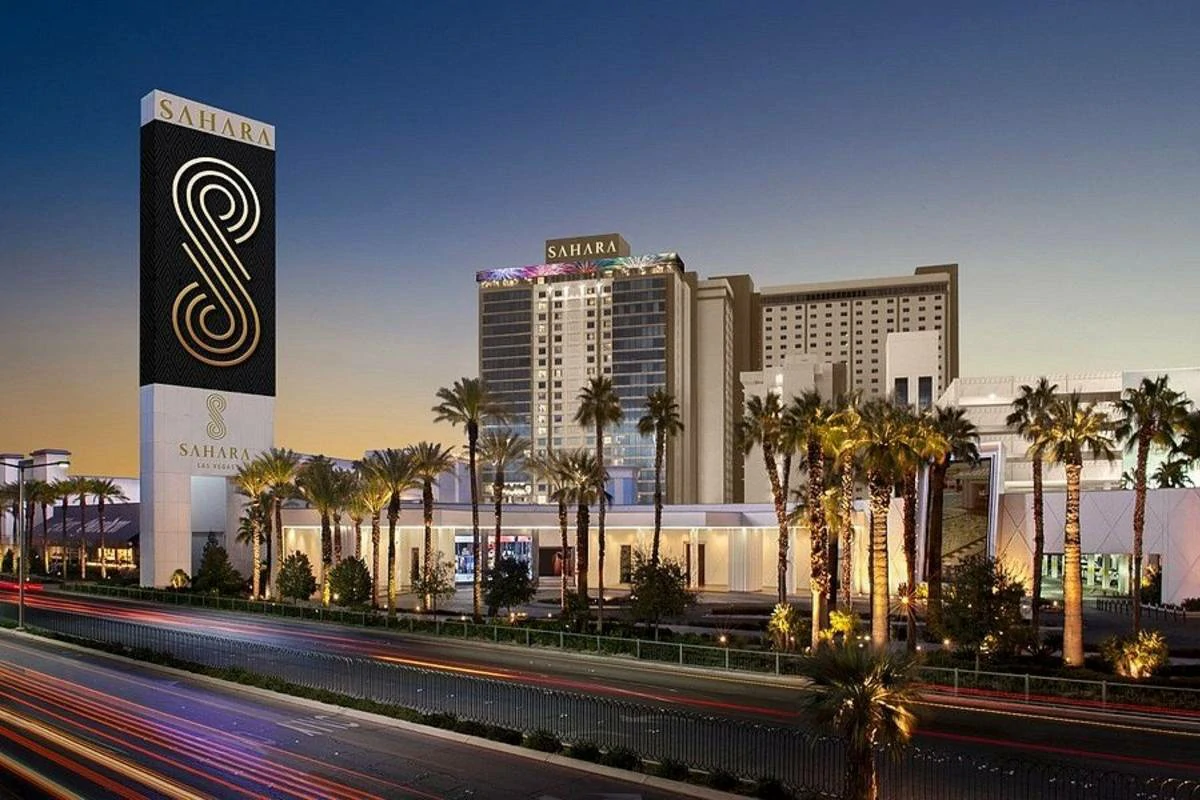Why are Vegas hotels so expensive now? Answer is – Las Vegas hotels have become increasingly expensive due to a combination of factors. Pent-up demand after pandemic-related restrictions, rising inflation, increased operating costs for hotels, the popularity of major events, and resort fees all contribute to the higher prices. Additionally, some suggest possible price-fixing practices amongst major hotel operators could influence these rising costs.
Summary
- Las Vegas hotels are experiencing unprecedented price increases.
- Inflation and post-pandemic travel demand are major contributors.
- Hotels are facing higher operating costs, leading to passed-on expenses.
- The influx of big events and festivals drives up demand and prices
- Resort fees add hidden costs to hotel stays.
- Allegations of price-fixing schemes amongst hoteliers are under investigation.
Why are Vegas hotels so expensive now?

Las Vegas, the city synonymous with extravagance and affordable thrills, is undergoing a shift. The once budget-friendly hotels that drew in crowds are steadily becoming a luxury few can easily indulge in.
Hotel prices on the Strip and even in some off-Strip locations have reached an all-time high, leaving many travelers wondering what’s behind this dramatic surge.
This article delves into the complex reasons driving up the cost of a Vegas stay. From the economic climate to hotel strategies, we’ll uncover the factors contributing to this trend. Understanding these dynamics can help you plan a Vegas getaway that fits your budget, even in this era of inflated prices.
Factors Influencing Rising Hotel Costs
1. Post-Pandemic Travel Boom
The COVID-19 pandemic brought the Las Vegas tourism industry to a screeching halt. With lockdowns and travel restrictions in place, casinos shuttered, and the once-bustling Strip fell silent.
As restrictions eased and pent-up wanderlust was unleashed, Vegas experienced a massive influx of visitors eager for a return to normalcy.
This surge in demand has strained hotel capacity, with occupancy rates often exceeding pre-pandemic levels. Basic economics dictates that when demand outstrips supply, prices rise, and the Las Vegas hotel market is no exception.
2. Inflation and Rising Operating Costs
The global economy is grappling with the effects of inflation, and Las Vegas is not immune. Hotels, like any business, face increasing costs for labor, supplies, energy, and more.
In a tight labor market, hotels are forced to compete for employees by offering higher wages and benefits. To offset these rising operating expenses, hotels pass some of those costs onto consumers through higher room rates.
Dr. Sarah Trenton Expert Opinion
“Running a major hotel on the Strip is like operating a small city,” explains hospitality industry analyst, Dr. Sarah Trenton. “From housekeeping to maintenance, and entertainment to food and beverage, there are thousands of moving parts. When the costs across every sector increase, that inevitably impacts the bottom line and the price guests pay.”
3. The Hidden Impact of Resort Fees
Those seemingly reasonable room rates advertised online often mask the true cost of a Vegas hotel stay.
Resort fees, mandatory charges added to your nightly bill, have become a near-universal practice on the Strip and in many off-Strip properties.
These fees, purportedly covering amenities like Wi-Fi, pool access, and even local phone calls, can add a significant amount to your final bill.
While intended to increase revenue for hotels, resort fees lack transparency and can create a misleading impression of lower initial room rates. For many travelers, these fees feel like unavoidable extra expenses that diminish the overall value of their stay.
Brian Miller Expert Opinion
“Resort fees are a major source of frustration for consumers,” says consumer advocate, Brian Miller. “They obscure the actual cost of a hotel room, making it difficult to comparison shop and often leading to unexpected charges at checkout.”
Why Are Vegas Hotels So Expensive Now?

1. Post-Pandemic Travel Boom
Imagine the pressure building inside a shaken soda bottle – that’s what the travel industry experienced during the pandemic lockdowns.
For nearly two years, would-be Vegas visitors were confined to their homes, their wanderlust growing stronger with each canceled trip.
The moment restrictions eased, that pent-up demand exploded, flooding Las Vegas with an unprecedented wave of eager tourists.
The statistics speak for themselves. According to the Las Vegas Convention and Visitors Authority (LVCVA), visitor volume in 2022 reached nearly 39 million – just shy of the record-breaking numbers in 2019. This influx of travelers has put immense strain on the city’s hotel capacity.
Hotels, eager to recover lost revenue, are capitalizing on the high demand. With occupancy rates consistently soaring, sometimes exceeding 90%, hotels have far less incentive to offer competitive rates.
It’s a classic example of supply and demand – when everyone wants a room, the prices naturally skyrocket.
Dr. Amanda Belson Expert Opinion
“The Vegas tourism machine is back in full force, and in many ways, it’s exceeding pre-pandemic levels,” notes Dr. Amanda Belson, a professor of hospitality management at the University of Nevada, Las Vegas. “This surge in visitors is a testament to the enduring appeal of Las Vegas, but it also creates challenges in terms of balancing supply with the overwhelming demand.”
2. Impact on Hotel Occupancy Rates
The surge in demand has directly translated into sky-high hotel occupancy rates. Before the pandemic, average occupancy on the Strip hovered around 80-85%, considered a healthy and profitable level.
Nowadays, those numbers are consistently pushed to the limit, with many hotels operating at near-full capacity, especially on weekends and during popular events.
This leaves less room for negotiation for budget-minded travelers. When hotels know they’re likely to fill their rooms regardless, they’re less pressured to offer discounts or special promotions.
Inflation and Increased Costs

Running a Las Vegas hotel is an expensive endeavor, and those costs haven’t escaped the far-reaching effects of inflation.
From the cleaning supplies used to maintain pristine rooms to the gourmet ingredients in a Michelin-starred restaurant, nearly every aspect of hotel operations has become more expensive.
1. The Impact of Inflation on Hotel Expenses
Labor Costs: Hotels are labor-intensive businesses, relying on a large workforce from housekeepers and front desk staff to chefs and entertainers. In the current tight labor market, hotels are forced to offer competitive wages and benefits to attract and retain employees. These increased labor costs are substantial and contribute significantly to rising hotel prices.
Supplies and Inventory: Global supply chain disruptions and inflation have driven up the cost of goods across every sector, including the hospitality industry. Everything from plush towels and luxurious bed linens to the fresh produce used in hotel restaurants now comes with a higher price tag.
Energy and Utilities: The dazzling lights of the Strip and the air conditioning that offers respite from the desert heat consume vast amounts of energy. With energy costs surging, hotels are facing significantly higher utility bills, further squeezing their profit margins.
2. Passing the Costs to Consumers
To maintain profitability in this inflationary environment, hotels have little choice but to pass some of the increased costs onto consumers in the form of higher room rates.
Unfortunately, it’s a vicious cycle – inflation increases hotels’ operating costs, which leads to higher room rates, which in turn fuels further inflation.
Mark Anderson Expert Opinion
“Hotels are caught in the same inflationary pressures as any other business,” explains financial analyst, Mark Anderson. “They can absorb some of the increased costs, but ultimately, to stay afloat, they need to adjust their pricing to reflect the economic reality.”
Resort Fees – The Hidden Costs

Imagine booking what seems like an incredible nightly rate for a Vegas hotel, only to have your excitement evaporate at checkout when faced with a hefty “resort fee” tacked onto your final bill.
These mandatory charges, often obscured in the fine print, have become a pervasive and controversial practice in the Las Vegas hotel industry.
1. What are Resort Fees?
Resort fees are nightly charges added to your hotel bill, ostensibly covering the use of amenities such as the pool, fitness center, Wi-Fi, and sometimes even local phone calls.
The concept behind these fees is to bundle the cost of these amenities, whether a guest uses them or not.
2. The Controversy Surrounding Resort Fees
Resort fees spark heated debate for several reasons:
Lack of Transparency: Advertised room rates frequently exclude resort fees, creating a false impression of affordability. This practice can mislead consumers into booking hotels that ultimately end up being more expensive than anticipated.
Questionable Value: Often, the amenities covered by resort fees are either basic (like Wi-Fi access which is standard in most hotels) or amenities guests may not even utilize during their stay. This raises questions about whether the fees represent genuine value.
Mandatory Nature: Unlike optional services like spa treatments or room service, resort fees are unavoidable, even if you don’t take advantage of the included amenities.
3. How Resort Fees Impact Hotel Costs
Resort fees significantly inflate the true cost of a Vegas hotel stay. These fees can range from $30 to upwards of $50 per night, quickly adding a substantial extra expense to your vacation budget.
The deceptive way they are often presented makes it difficult to compare hotel prices accurately, leading to frustrating surprises at checkout.
Brian Miller Expert Opinion
“Resort fees are a major pain point for consumers,” says Brian Miller, a consumer advocate specializing in travel. “They undermine price transparency and create a sense that hotels are intentionally hiding the true cost of a stay.”
Big Events Mean Big Prices

Las Vegas isn’t just about casinos and showgirls; it’s a mecca for major events that draw massive crowds throughout the year.
From blockbuster concerts and championship fights to industry-leading conventions, the city’s events calendar is jam-packed with reasons for visitors to flock to the Strip and beyond.
1. Popular Events Fueling Vegas Demand
Marquee Concerts: Global superstars light up Vegas stages with residencies and one-off performances. Catching the likes of Adele, Bruno Mars, or Usher in concert brings legions of dedicated fans to the city.
Sporting Spectaculars: Vegas hosts high-profile boxing matches, UFC fights, the NFL Draft, Formula 1 races, and major college sporting events. These draw in passionate sports enthusiasts willing to pay a premium.
Mega Conventions: CES (Consumer Electronics Show), along with numerous other industry trade shows, bring hundreds of thousands of business travelers with expense accounts to the city.
Festival Fever: Music festivals like Life is Beautiful and Electric Daisy Carnival attract a younger crowd ready to party and splurge on Vegas accommodations.
2. How Events Impact Hotel Prices
The law of supply and demand reigns supreme in Las Vegas, especially during major events. When a huge influx of visitors descends on the city all at once, hotel occupancy rates skyrocket.
These peak demand periods give hotels immense leverage to charge higher prices. Here’s why:
Limited Supply vs. Massive Demand: Even with its abundance of hotels, Vegas has a finite number of rooms. A giant event can strain that supply, making rooms a hot commodity.
Willingness to Pay: Event-goers are often more willing to pay higher hotel rates since the event is the primary focus of their trip. They’ve factored in the added cost.
Anticipation Leads to Early Booking: Tickets for major events often sell out quickly. Knowing this, savvy attendees book their hotels well in advance, further reducing availability and driving prices upward.
Dr. Sarah Trenton Expert Opinion
“Major events create a perfect storm for inflated hotel prices,” explains Dr. Sarah Trenton, a hospitality industry analyst. “The combination of limited availability, high demand, and a captive audience gives hotels the green light to increase rates.”
Allegations of Price-Fixing

While the factors we’ve explored play a significant role in rising Vegas hotel prices, there’s another troubling possibility under investigation – allegations of price collusion among major hotel chains.
1. The Lawsuit at Hand
An ongoing class-action lawsuit accuses several big players in the Las Vegas hotel market, including Caesars Entertainment, Wynn Resorts, and MGM Resorts International, of engaging in price-fixing schemes.
The lawsuit alleges that these companies used revenue management software to share real-time data and coordinate pricing strategies, artificially inflating hotel room rates across the board.
2. Understanding Price-Fixing
Price-fixing occurs when competitors collude to set prices rather than letting fair market competition dictate them.
This practice is illegal under antitrust laws as it eliminates competition and harms consumers by forcing them to pay higher prices.
3. Potential Impact on the Vegas Market
If the allegations prove true, it suggests that market forces aren’t the only factor influencing those sky-high Vegas hotel rates.
A price-fixing scheme would mean a deliberate effort by major hotels to collaborate on pricing, limiting true competition and ultimately costing travelers more.
Jennifer Harris Expert Opinion
“Price-fixing allegations strike at the heart of fair competition,” says consumer law expert, Jennifer Harris. “If proven, these practices would reveal a troubling lack of transparency in the Vegas hotel industry, potentially defrauding consumers out of millions of dollars.”
What Does This Mean for Travelers?

The rising cost of Vegas hotels presents a challenge for budget-conscious travelers. However, don’t despair! With some savvy planning and flexibility, you can still enjoy the excitement of Las Vegas without breaking the bank.
1. Strategies for Finding Affordable Vegas Accommodations
Think Beyond the Strip
Venture off the world-famous Strip to uncover more affordable options. Downtown Las Vegas and areas further off the main drag often offer hotels with lower nightly rates.
Don’t underestimate the convenience of the Las Vegas Monorail for accessing the Strip when staying off-site.
Travel Strategically
Timing is everything in Vegas. Avoid peak seasons like major holidays, weekends, and during huge events when prices soar.
Opt for weekdays and shoulder seasons (the periods between peak and off-peak) to find better deals.
Be a Deal Hunter
Take advantage of hotel promotions, loyalty programs, and package deals that bundle flights and hotels, potentially saving you money.
Sign up for email alerts from your favorite Vegas hotels or use comparison websites to track down the best offers.
Melissa Lee Expert Opinion
“Flexibility is key when it comes to finding affordable Vegas accommodations,” advises travel blogger and Vegas expert, Melissa Lee. “Be open to off-Strip hotels, alternative dates, and keep an eye out for deals – even a small discount per night adds up over your stay.”
2. Alternative Lodging Options
Airbnb and Vacation Rentals
Explore websites like Airbnb and Vrbo for a wide variety of vacation rentals in Las Vegas.
From condos with Strip views to houses with pools, these options can offer more space, privacy, and sometimes, even better value than hotels.
Hostels
If you’re a solo traveler on a tight budget or enjoy a social atmosphere, hostels in Las Vegas present an ultra-affordable option.
While sacrificing some privacy, hostels offer dorm-style rooms or private rooms at significantly lower rates than hotels.
FAQs
Q: Are Vegas hotels always this expensive?
While prices have increased significantly, there are ways to find more affordable Vegas stays. Off-peak periods, off-Strip hotels, and vacation rentals often offer better deals.
Q: Why do Vegas hotels charge resort fees?
Hotels claim resort fees cover amenities, but they are highly controversial due to their lack of transparency and the often questionable value they represent.
Q: Will the price-fixing lawsuit make Vegas hotels cheaper?
If hotels are found guilty, it might lead to fairer pricing practices. However, the lawsuit’s outcome is uncertain, and other factors still contribute to high hotel costs.
Conclusion
The rising cost of Las Vegas hotels presents a challenge for budget-savvy travelers. A combination of factors, including post-pandemic demand, inflation, resort fees, major events, and potential price-fixing practices, have created a complex situation.
However, understanding these factors empowers you to make informed decisions and find ways to enjoy the thrills of Vegas without completely emptying your wallet. Remember these key strategies:
- Be flexible with your travel dates.
- Consider off-Strip accommodations.
- Hunt for deals and promotions.
- Explore alternative lodging options.







